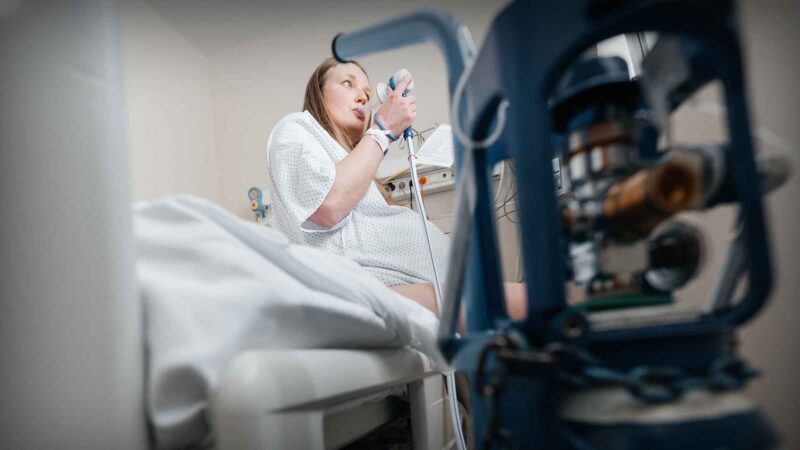BURDEN, RISK FACTORS AND PREVENTION OF RESPIRATORY INFECTIONS AND INFECTIOUS DISEASES IN CHILDREN
Associate Professor Hannah Moore OAM
Program Head, Infection and Vaccines,
The Kids Research Institute Australia &
Associate Professor at the School of Population Health, Curtin University
Western Australia
RESEARCHER PROFILE (Filmed in Perth, Western Australia | December 2024)
A/Prof Hannah Moore OAM is an infectious disease epidemiologist; Co-Head of the Infectious Disease Epidemiology team within the Wesfarmers Centre of Vaccines and Infectious Diseases at The Kids Research Institute Australia and Associate Professor at the School of Population Health, Curtin University in Western Australia.
Her passion for research involves using population-based data to investigate how to recognise, prevent and reduce serious respiratory and other infectious diseases in children through estimating burden of disease and evaluating the effectiveness of vaccination programs. She has developed expertise in the epidemiology of Respiratory Syncytial Virus (RSV) in young children, where her research was pivotal in WA Governments’ decision to establish the first and most comprehensive RSV infant immunisation program in the nation. Raising awareness of RSV, understanding community burden and evaluating the impact of prevention measures is now a major focus of her research program. She has previously contributed to state and national influenza vaccination policy.
In 2020 A/Prof Moore joined the Strep A Vaccine Global Consortium (SAVAC) to increase knowledge and awareness of the global burden of Group A Streptococcal diseases. She now holds an activity lead position in the US$11M-funded SAVAC 2.0.
A/Prof Moore has been awarded more than $19M in competitive research grants, co-authored more than 140 papers, was TEDxPerth 2018 speaker, recipient of a WA Young Tall Poppy Award (2013) and the WA Premiers Science Early Career Scientist Award (2015). In 2024, she was honoured with a Medal of the Order of Australia for her service to epidemiology as a researcher.
Editor’s note: At the time of recording in September 2024, A/Prof Hannah Moore makes reference to needing a national RSV immunisation program. Efforts by her and others in campaigning were successful and in November 2024 the Australian National Immunisation Program was updated to include RSV from 2025. https://www.health.gov.au/news/national-immunisation-program-update-rsv-vaccine#:~:text=The%20inclusion%20of%20the%20RSV,announced%20as%20soon%20as%20possible.
You Might also like
-
Medically Complex Pregnancies
A/Prof Shelley Wilkinson is an Advanced Accredited Practising Dietitian, Fellow of Dietitians Australia, and a leading Australian researcher in maternal health and implementation science.
She has over 30 years of experience in the field and holds a PhD in Psychology. Her passion is in health service redesign through co-creation and combining the ‘know-what’ of nutrition with the ‘know-how’ of innovative behaviour change techniques.
-
Treatment pathways for chronic plantar heel pain
Jason Rogers is a Tasmanian physiotherapist clinician-researcher with a longstanding interest in improving musculoskeletal foot and ankle conditions. He completed his PhD at the Menzies Institute for Medical Research at the University of Tasmania in 2022 investigating the clinical and imaging factors associated with a common foot complaint known as chronic plantar heel pain.
-
Mental health research on first responders in regional, rural and remote Australia
Dr Rikki Jones has been awarded to date a total of over $430,000 in research funding. She is currently leading four large national research teams focusing on rural health and sustainable rural health workforce (include mental health of first responders, sexual violence in rural Australia, virtual simulated nursing placements, and nursing students experience with online learning, connection and transitioning to practice).

 https://orcid.org/0000-0003-4920-9991
https://orcid.org/0000-0003-4920-9991


